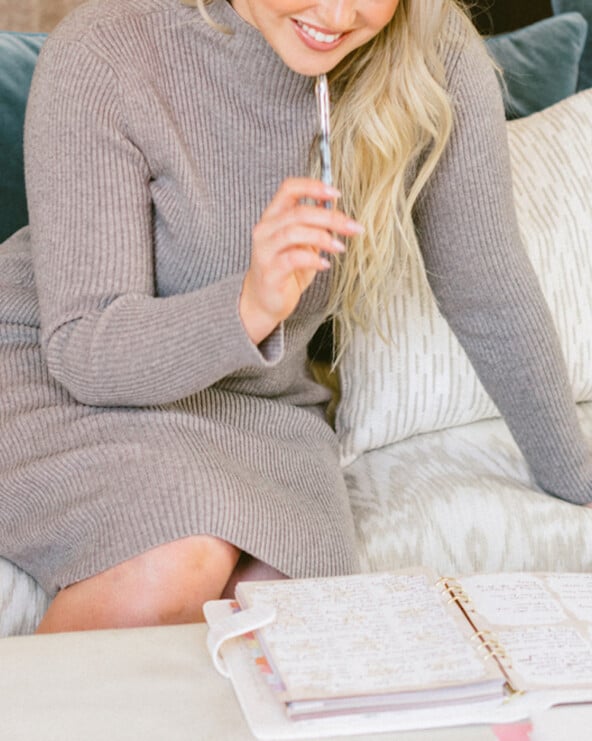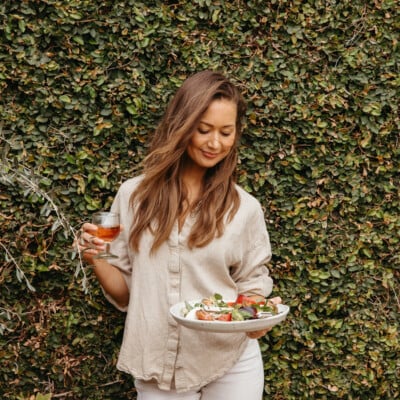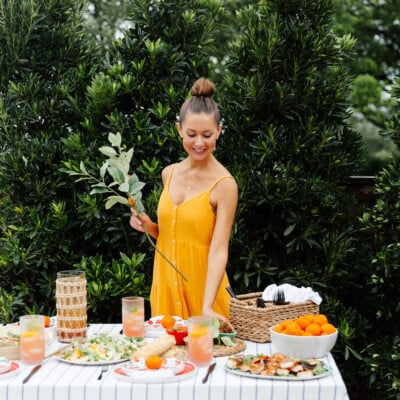“Eternal optimism” has always been my personal M.O., and it’s the foundation for how I take on the world day-to-day. But this year, the pandemic and its effects have suppressed my usually sunny attitude as unfamiliar feelings of our new reality creep in. Even still, dark clouds can illuminate silver linings, and in these trying times I feel a sense of hope as I witness the amplification of important voices, and many of us feeling a new level of responsibility to protect and agitate for our fellow humans. The Black Lives Matter movement has undoubtedly struck a chord within me and so many others across the globe.
This is a pivotal time in our country’s history, and I’m doing my best to heed Maya Angelou’s challenge: “Do the best you can until you know better. Then when you know better, do better.”
featured image: tea collection
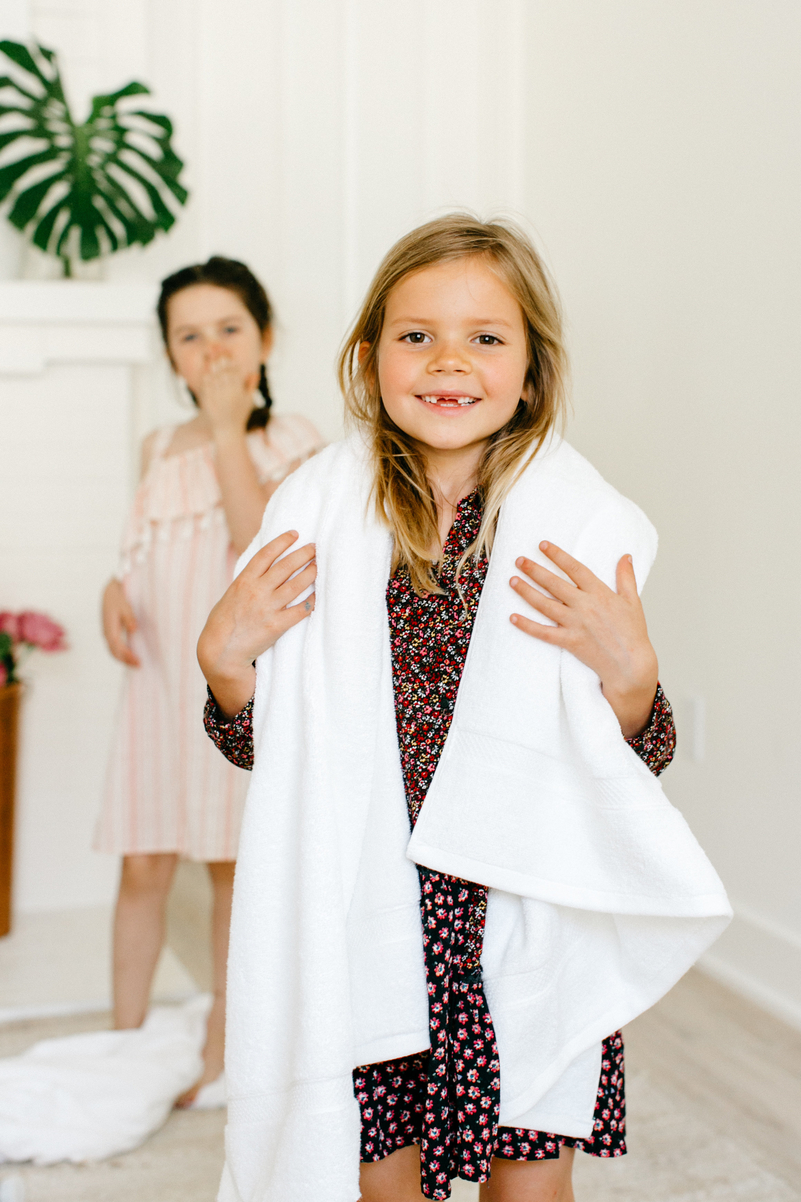
As a mother of three young children (my middle, Cora, is above), it’s my responsibility to teach my children what I’m learning as I seek to understand the deeply rooted idea of white privilege. In my research, I discovered Waking Giants, a social impact organization founded in 2019 on the principles of connecting people to a breadth of social issues we all face within the realms of humanity, power, truth, love and community.
I had the pleasure to (virtually) sit down with Waking Giants co-founder Martha Pincoffs to talk motherhood, what it means to raise a justice-minded child, and how our daily choices can help forge a more deeply connected future for the next generation.
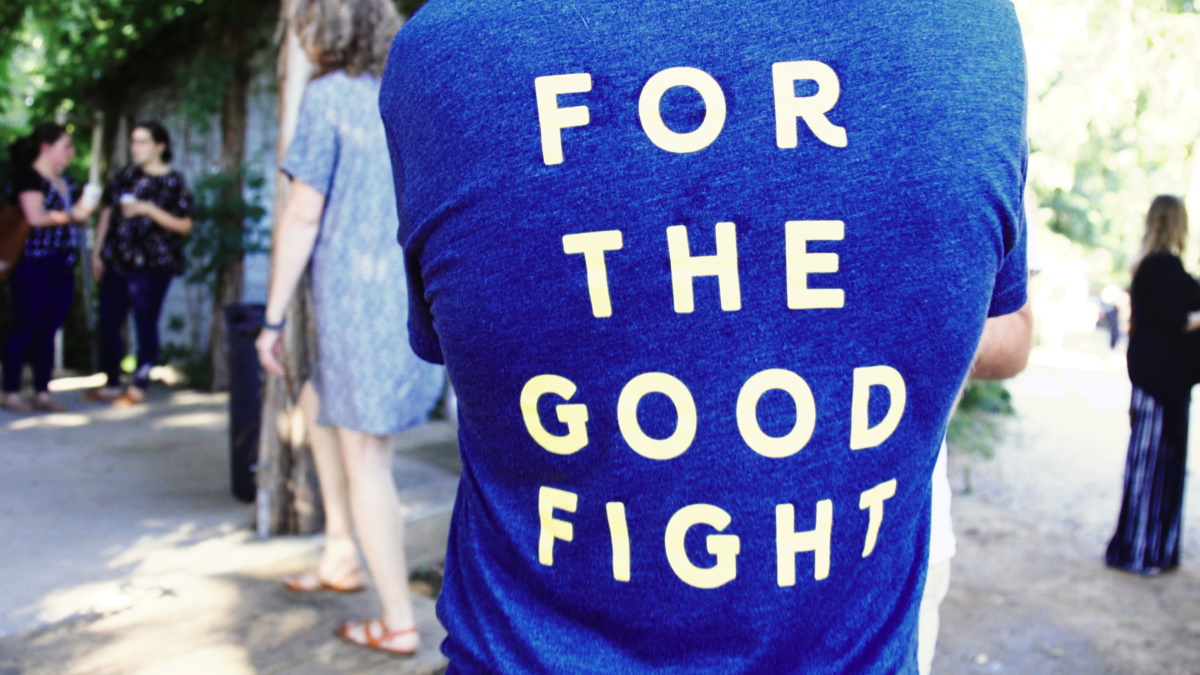
Martha, tell us about Waking Giants. Where did the name come from?
Waking Giants is a social impact company. We are on a mission to connect people more deeply to the issues of today and provide resources to move them to action. That comes in the form of online workshops, issue-based tool kits, author series, and more.
I think of the “Giant” as our collective action. We are in a place right now where we have gotten pretty far away from our civic responsibility. We need to remember that the people in power work for us, and we have a hand in shaping the kind of country and world we want to live in. It is easy to get distracted by the mess of politics and turn it all off, but civics touches our lives every single day and the more we choose to participate in shaping that, the more it will align with our values.
We’d love to hear more about your life as a working mom. How do you incorporate what you’re teaching at Waking Giants into your own life?
My co-founder, Sera Bonds, and I bring our parenting to this work every day. The drive to build this company comes from a desire to hand our kids a better world than the one we have right now. A world where we have actually addressed some of the major structural inequality we have in our current systems. So, our kids and the world we are building for all of them are the biggest inspiration for the work.
Logistically, my kiddos are along for the ride – especially in the pandemic. They feel a real ownership in Waking Giants. They have packed boxes and tested coloring books for me. I try to bring them into the parts that are fun for them.
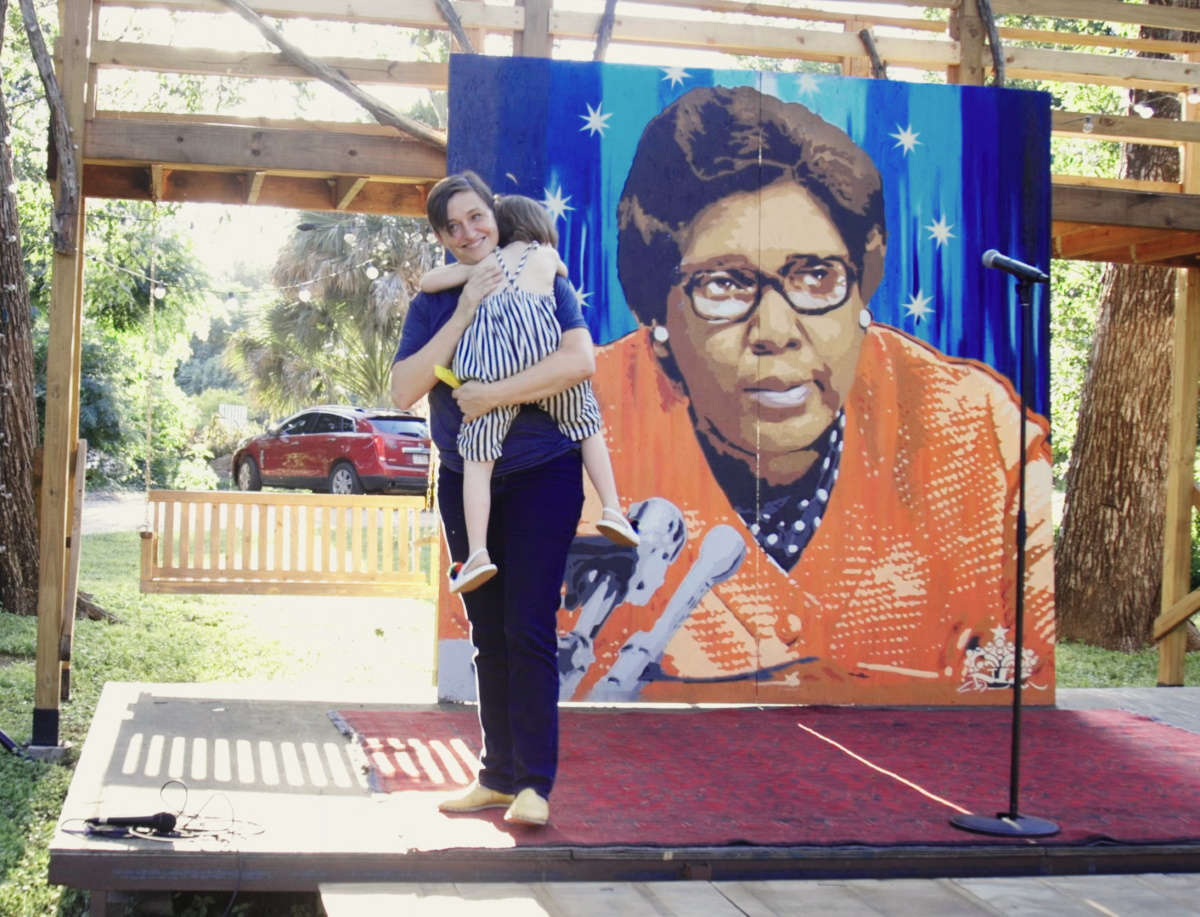
What does it mean to raise a “justice-minded child?”
I think it’s raising kids that are empathetic and brave. We need them to be able to imagine what an experience outside of their own might feel like and feed that impulse in them.
Kids are naturally so empathetic and curious that they really seem able to “try-on” other lives. We can help them practice being brave and speaking up when they see things that don’t sit right. We can teach them to listen to their deep knowing and not the social pressure that so often silences that.
At what age do most humans start becoming aware of our differences – everything from race to gender identity?
According to Jennifer Harvey’s book, Raising White Kids: Bringing up Children in a Racially Unjust America, they are aware of race and other differences as early as six months old. As soon as they are exposed to books and TV and other stories, their worlds start to take definition.
How should we be talking to our children about race? Where’s a great place to start?
I don’t think there is such thing as too early. Society starts feeding us images and telling us stories about race as soon as we can consume them. To raise race conscious kids we can talk about race in age appropriate ways and help them build a healthy race consciousness from the beginning. It will depend on what age they are and how much exposure they have had to the existence of racism. Books and movies are great ways to introduce the concepts.
image: baby boden
What are the steps parents should take to start guiding their children to becoming more justice-minded?
Build a world in your home that is representative of the world you want for them. Find toys and books and shows that feature people of all colors and abilities. We can do work at home to normalize Black, Latino and queer families and characters. Once you start looking for Black dolls you will see how early white is set out as “normal.” Intentionally countering that is a great place to start at home. In the world, apply the same intention when you are building relationships.
Make sure that children don’t only see white men in positions of prestige, choose diverse doctors, lawyers, dentists. These are formative relationships and great places to choose good role models.
And, hit the pause button. Literally. When you are watching a show together or something is on the radio, stop and talk them through it. I think it is really important to teach them how to be critical of the messages they are taking in. We pause to talk about toxic messaging as it related to race, gender, and sexuality. We want our kids to be conscientious consumers of information. We try to teach them to question the messaging and look at the source and be curious about who benefits from the message. That nuance gets easier as they get older, but it is good to start early.
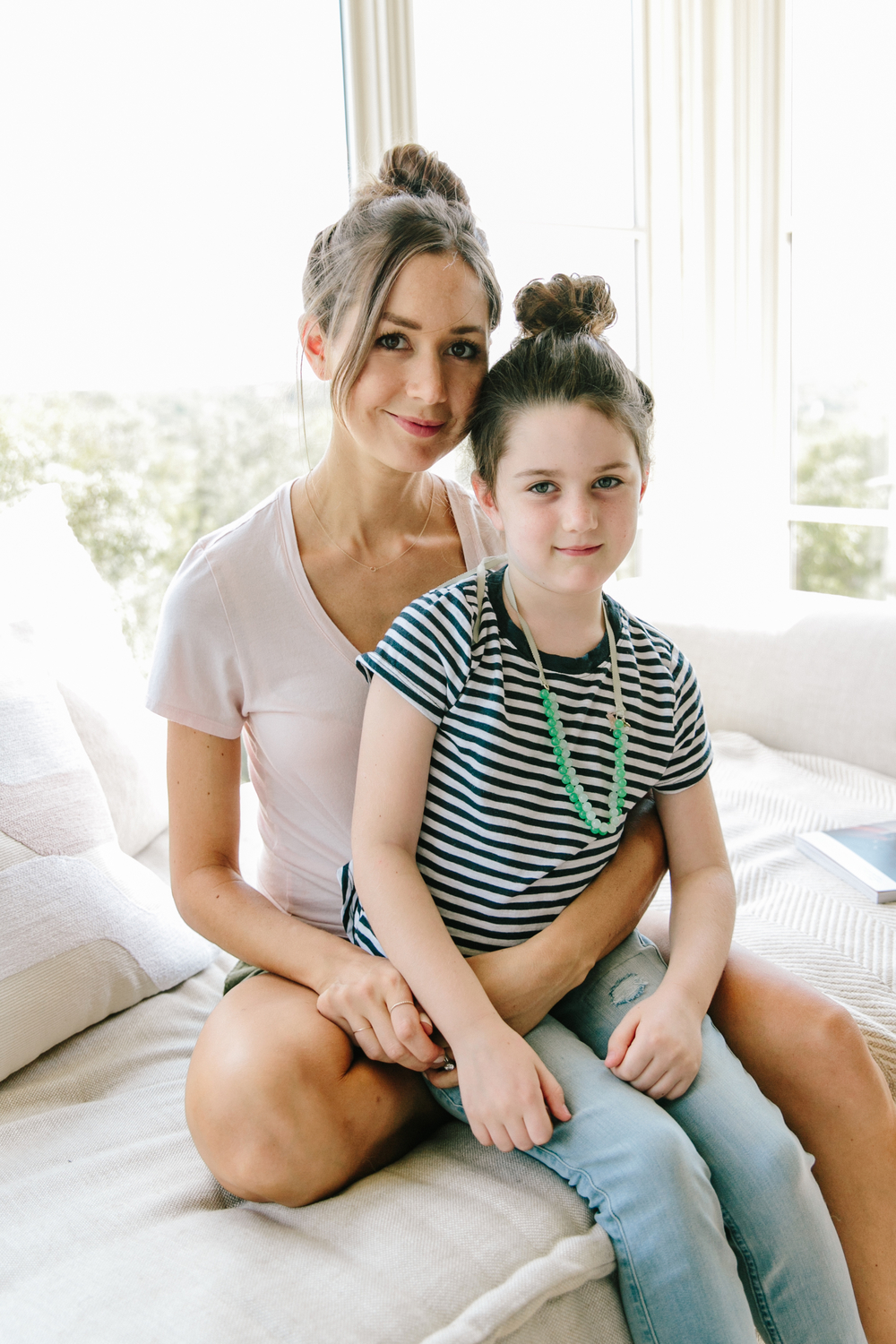
What are the most common blind spots you witness in adults when teaching your various programs about how to undo white privilege in their lives and consciousness?
So many of us were raised in the “color-blind” generation. So that makes talking about race and the ways that white supremacy has shaped our country really uncomfortable. We were done a disservice in our education – and that is still perpetuated- where we tell this idyllic story of the formation of our country. In that story, we leave out much of the suffering, pain, and oppression that is built into our fabric. I think a great first step for us is to seek an education on the actual formation of this country. We have a beautiful promise at the core of our foundation “that all men are created equal” but we have yet to make it real. Read, listen, and follow Black leaders in all areas to expand your perspective.
A critical way to support the world we want to see is financial. Seek Black-owned businesses to support. Donate to Black-led organizations. Make sure that the organizations you are involved in are intentional in their hiring, support, and promotion practices. Diverse hiring is not enough, there has to be intentional equity and belonging work done with the entire organization so that we are building safe and inclusive spaces for BIPOC people.
What are some of the most common privileges that white parents have (which they do not realize)?
White parents have privilege in the literal air that we breathe. BIPOC are much more likely to live areas with much higher instance of environmental pollution. As a white woman, when I am pulled over on the street, I am not remotely concerned for my physical safety, nor am I concerned that I will be unjustly taken to jail. I am more concerned about how I might get out of the ticket. This is not the case for Black people. In the case of Breonna Taylor, she wasn’t even safe simply sleeping in her bed. I don’t get followed in a store when I am shopping. I am safe to run in my neighborhood without suspicion. None of that is true for Black people; they are often viewed with suspicion for simply existing and minding their business. And, imagine the harm that constantly worrying for the physical and emotional safety of your most beloved ones would do over time to your physical being.
What books, movies and television shows do you recommend to teach our children about race and equality?
There is a plethora of great lists on building an antiracist library. Here is one from The New York Times. The key is to also about building representation in all ways. Not just flooding them with books about racism but showing them joyful stories that feature Black characters. Help kids understand how multi-dimensional we all are. Ibram X. Kendi has a series of books for all ages that cannot be missed. Also, Sesame Street did a town hall on race.
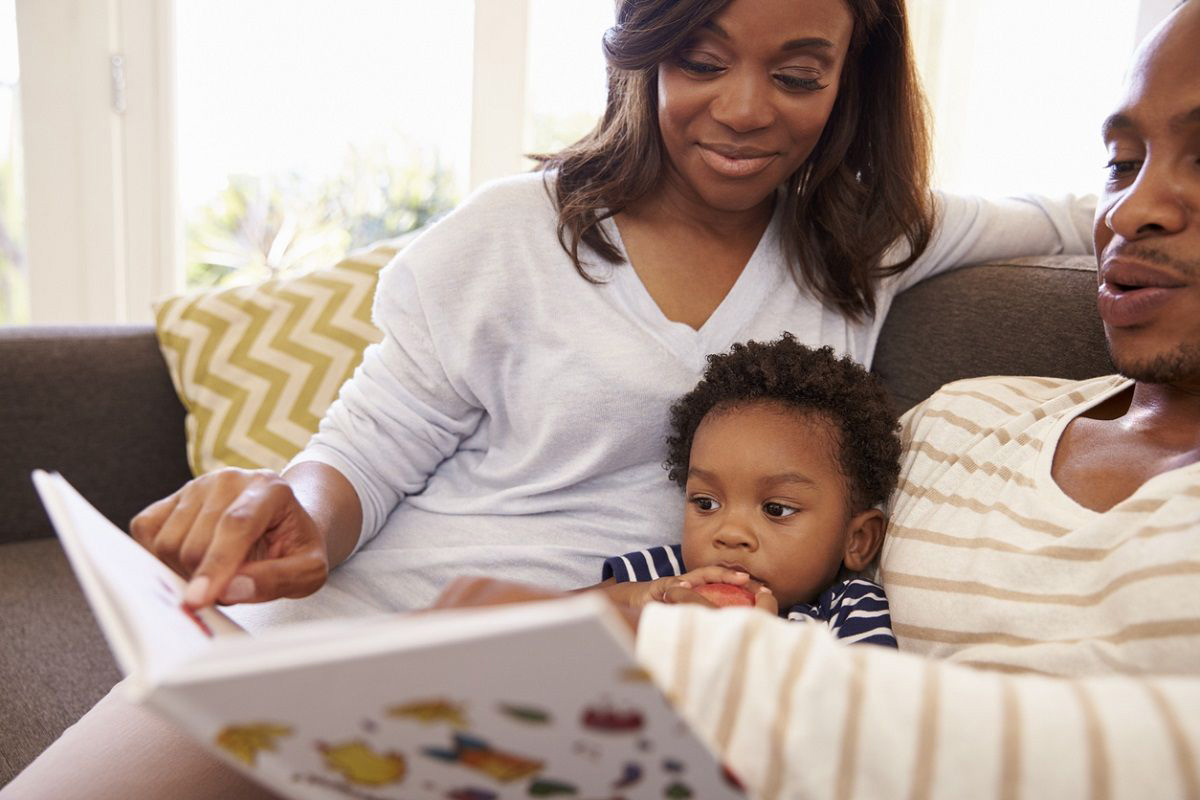
Are there TV shows, movies, books and podcasts that you recommend for adults to read to help them be better equipped to raise justice-minded children?
There are so many amazing resources out there. You just have to get started.
- I recommend the new podcast from The New York Times: Nice White Parents.
- NYT’s The 1619 Project podcast is another great one.
- Reveal has Seeing White, which explains the construct of whiteness.
- 13th is a documentary by Ava Duvernay on Netflix.
- Duvernay also made the story of the Central Park 5, When They See Us.
- I Am Not Your Negro about James Baldwin is a great movie.
A couple of my favorite books are just the tip of the iceberg:
- Ibram X. Kendi, How To Be An Antiracist
- Dr. Peniel Joseph, The Sword and the Shield: The Revolutionary Lives of Malcolm X and Martin Luther King Jr.
- Jen Harvey, Raising White Kids: Bringing Up Children In a Racially Unjust America
- Michelle Alexander, The New Jim Crow
and always always Between The World and Me by Ta-Nehisi Coates.
What can children do out in the community (especially during a pandemic) to help make the world a better place?
They can play and explore and learn about the enormous incredible world they live in. They can get in tune with what troubles their hearts and start making action to change it. Art is a great way for them to channel that now. When it is safe again, I highly recommend taking the kids to marches. It generates conversation and they have the feeling of the power of showing up.
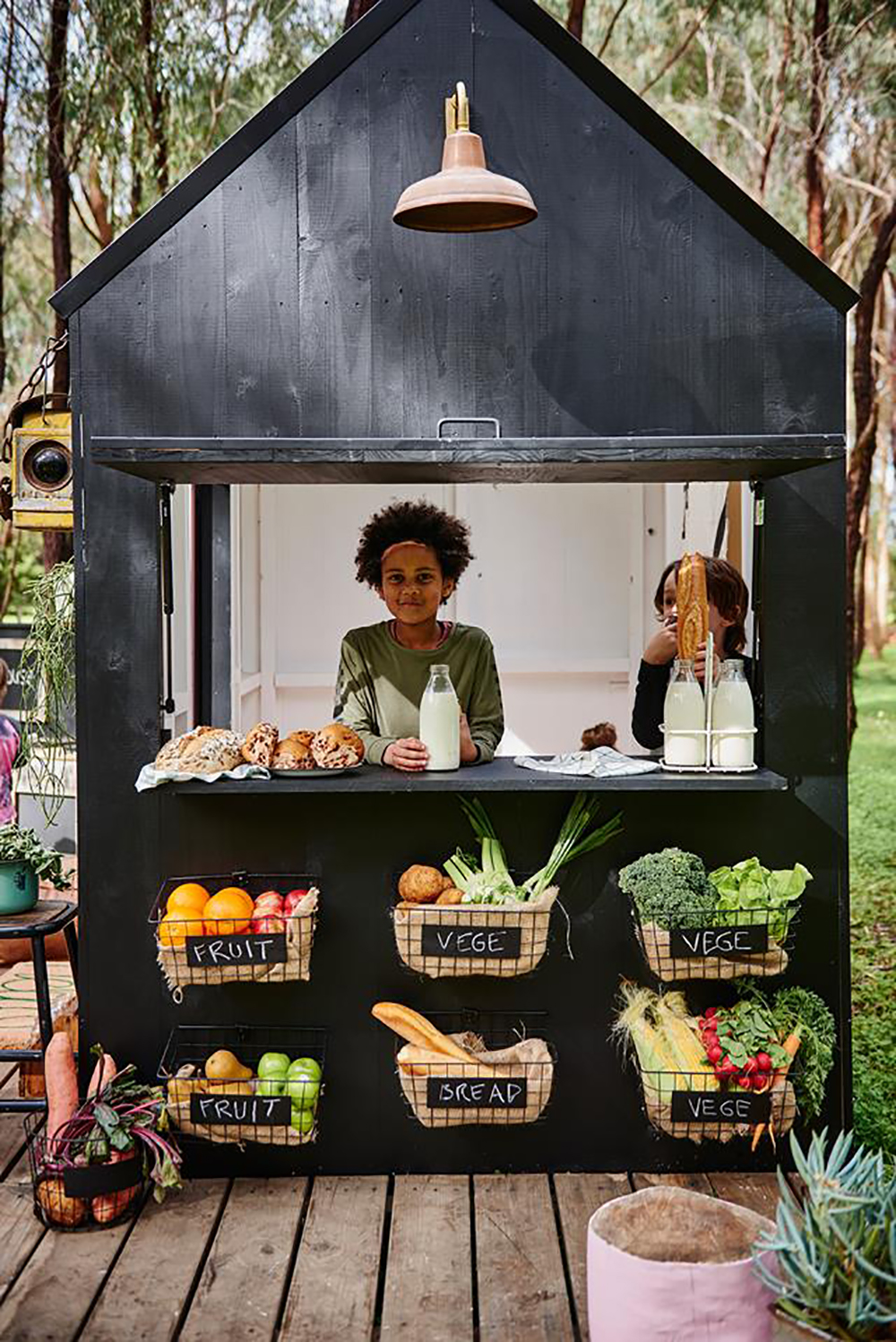
Can you name a time when you had to overcome your own discomfort in this area? Possibly a time when you had a challenging conversation with your own children about tough issues?
I have to overcome my discomfort on race and privilege daily and it is truly a practice. I especially want to get this work right, so I get nervous when I am teaching a workshop or interviewing authors. The conditioning that we received as it relates to race is really deep and we have so much work to do to overcome that. We will not get the country that we hope for or the world all of our kids deserve until we step into that discomfort and get to work.
Dr. Peniel Joseph, a friend and scholar on race, believes that in this moment we are being presented with a generational opportunity to deliver Dr. Martin Luther King’s Beloved Community into the world. There could be no better world for us to hand to our children. Doing that requires all of us.
We especially need more white people understanding how racism is embedded in the core of this country and there is not a system untouched by it. So, we must do the hard and necessary work of pulling it up by the roots. We get better at the work of antiracism the more we do it and challenging the social structures that hold this in place becomes easier.
***
ed. note: Thank you, Martha! One other resource that I’m particularly excited about is Ripple Reads – a new monthly membership that provides books, activities, and guides to help parents continue the conversations about race and justice at home. I’m on the advisory board and am so excited about the September launch. Sign up here! – CS


